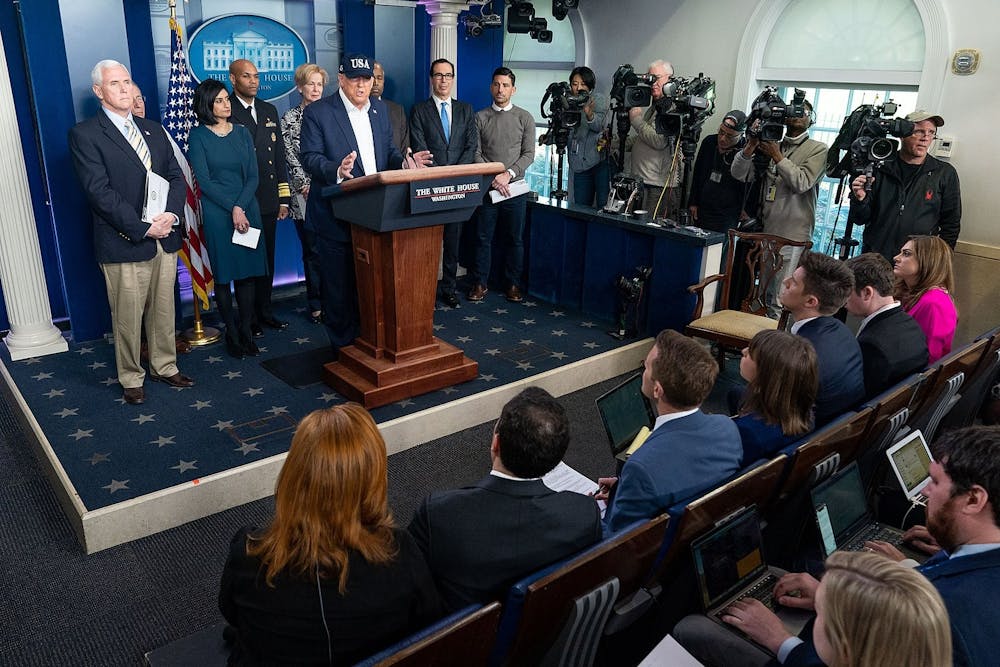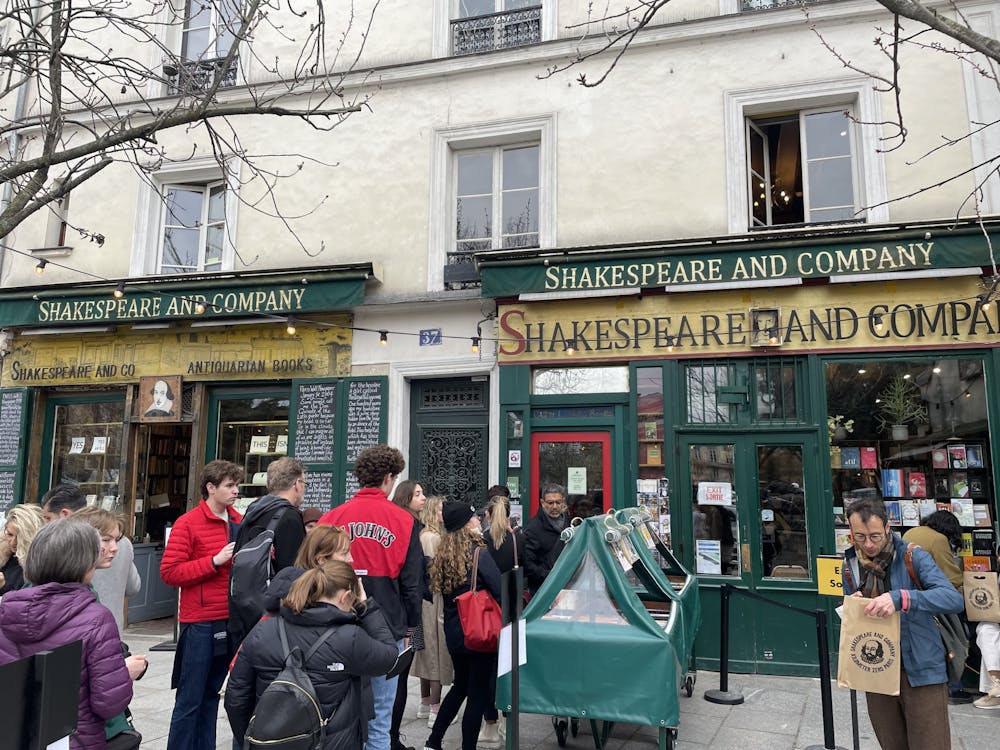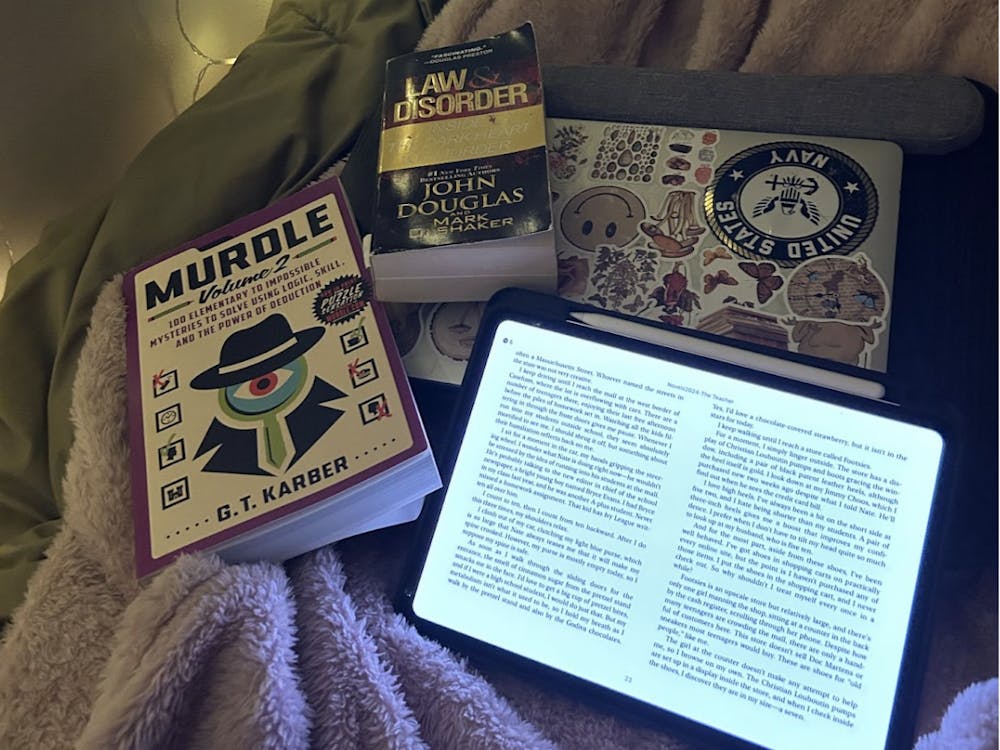With the increasing severity of the coronavirus (COVID-19) pandemic, people are absorbed in a constant state of fear, anxiety and stress. This crisis is novel, intense and deadly, and little is known about the virus or treatment methods. Aided by the internet and a primal fear of the unknown, rumors spread even faster than the virus can.
There is an old Chinese idiom: “Rumors end at the wise.” However, I think rumors end, ultimately, at trust. Unfortunately, when people lose trust in authority figures, including both the media and the government, they resort to conspiracy theories fueled by “insider info” and word of mouth.
Mistrust in the media is not groundless. Major news media nowadays are biased by political alignments. Consequently, media coverage presents semblances of truth distorted by prejudice.
During Hurricane Katrina in 2005, two similar images of survivors wading through floods with food in their arms were published. However, the picture of a black man was labeled as “looting” the grocery store, while the photo of a white couple was labeled “finding” food.
These pictures were taken by two different photographers and came from two different services: the Associated Press and Getty Images via Agence France-Presse. The resulting difference in caption wording can be merely because of individual editors, photographers and their stylistic differences. Nevertheless, biased reporting like this gives people reason to not trust the media.
As technology has progressed, traditional media such as newspapers and broadcast networks have shifted toward new outlets, like 24-hour cable news channels and digital posts. As people are exposed to a wider range of information, news writers need content that grabs instant attention and appeals to emotions, so they make articles more and more opinionated and radical.
When reporting COVID-19, the truth became less important than viewership. If you only browse the headlines and Twitter, as many people do in this age of an overwhelming swarm of information, the world seems more like a catastrophic apocalypse than the reality: a struggle, but a winnable battle if individual discretion and policy improvement are implemented.
When the media focuses on sensationalism instead of facts, they end up diverting the attention from a solution to blame games, political bickering and unnecessary panic.
More dangerously, some prominent media outlets have attacked some government containment measures in the belief that they infringe on personal freedom. One article on Iowa Public Radio by an anonymous author, supposedly a Wuhan resident, portrayed life in lockdown as a “living hell.” Such descriptions, though representative of the truth from one perspective, are myopic in ignoring the advantages of such strict measures in a bigger picture. Some articles, while indeed addressing flaws in the United States’ handling of the situation, consequently worsen the anxiety and mistrust of the people.
In a time of stability, the media checks the power of a government by representing the people whose voices are otherwise unheard. However, the interaction between people and government is shrouded by an inequality of information. The government usually consists of experts in public health, academia and politicians, and some information they have may not be available to the general public due to security reasons.
In my opinion, when times are good, the media keeps the government from abusing their power and ensures that people elect the best representatives. However, when times are bad, it’s better for people to trust those whom they elected in peaceful days, as governments and their people need to fight on the same side of the battle when nobody can afford to lose.
To deter the spread of misinformation, however, some governments around the world have enacted excessive measures. For example, Turkey warned against a five-year jail sentence for intentionally disseminating what the government deemed “fake news.” Because “fake news” is defined by those in power, these laws are used to punish those who speak against the authority of the leaders.
Because of the governmental structure of checks-and-balance, the U.S. is more resilient to a leader’s breach of power. Even though Trump wants to reopen the American economy more than anyone, his plans are often opposed by state governors. However, a global crisis is a point in time where the trust between the people and governments becomes more vulnerable. Opinionated coverage by the media would only worsen such a delicate relationship.
One example of the media deepening mistrust is the coverage of COVID-19 lockdown protests, which are spreading as quickly as misinformation about them. However, people’s revulsion toward the portrayed recklessness of such protests results in rounds of misinformation. After protests erupted in the Michigan Capitol, an image of a person holding a swastika flag with “TRUMP PENCE” started circulating on social media. As it turned out this display was at a Bernie Sanders rally to demonize the political opponents.
Overcoming this global crisis requires effort from all individuals: Health care workers devote their own lives to saving lives; essential service workers risk their health providing what people cannot live without; those with skills sew and donate homemade masks to those in need; corporations and businesses do what they can to help people, especially health care workers, get necessary equipment.
More influential than most of these societal constituents, the media should do its job by clearly reporting the facts, instead of playing with rhetoric. The latter only makes it harder for common people to navigate through a global crisis.
As an individual, this is a once-in-a-life-time opportunity to be a hero for doing nothing: not wandering around, not spreading rumors and not making the job harder for those working on the first line. More importantly, if something cannot be verified, do not share it.
Rumors infect one individual and are transmitted to the next, using fear as their vector. In times of overwhelming news coverage and push notifications, we must be especially vigilant to not fall victim to misinformation.
Shizheng “JJ” Tie is a junior international student majoring in Environmental Engineering from Luoyang, China.





